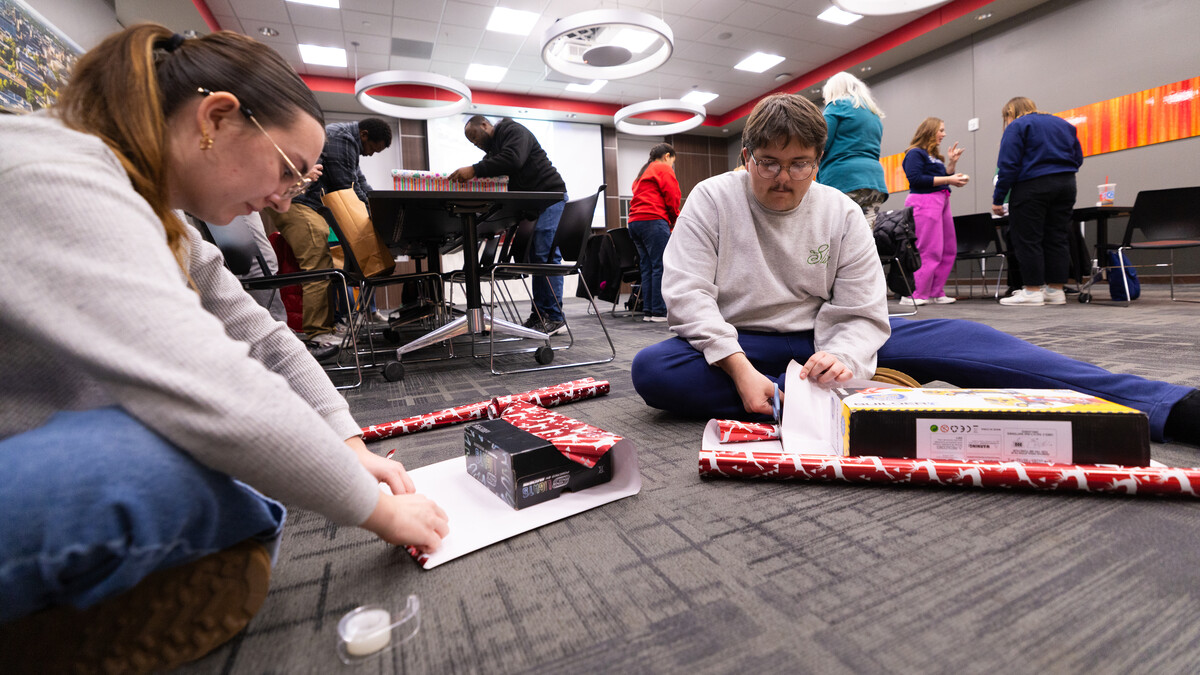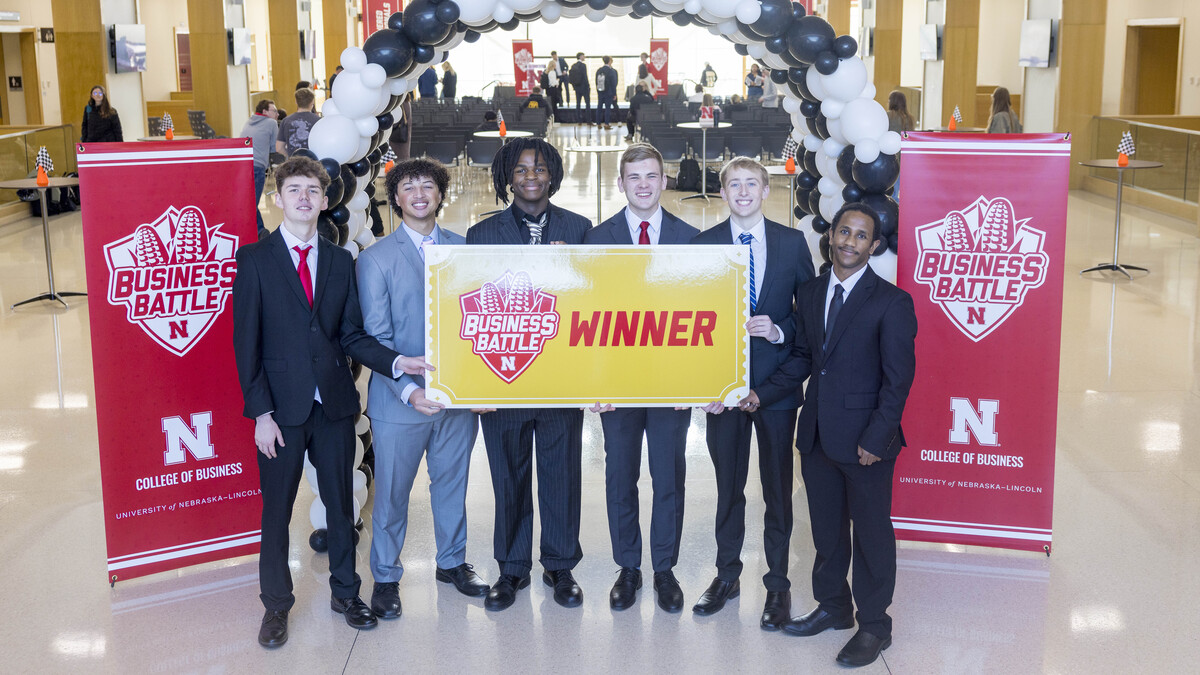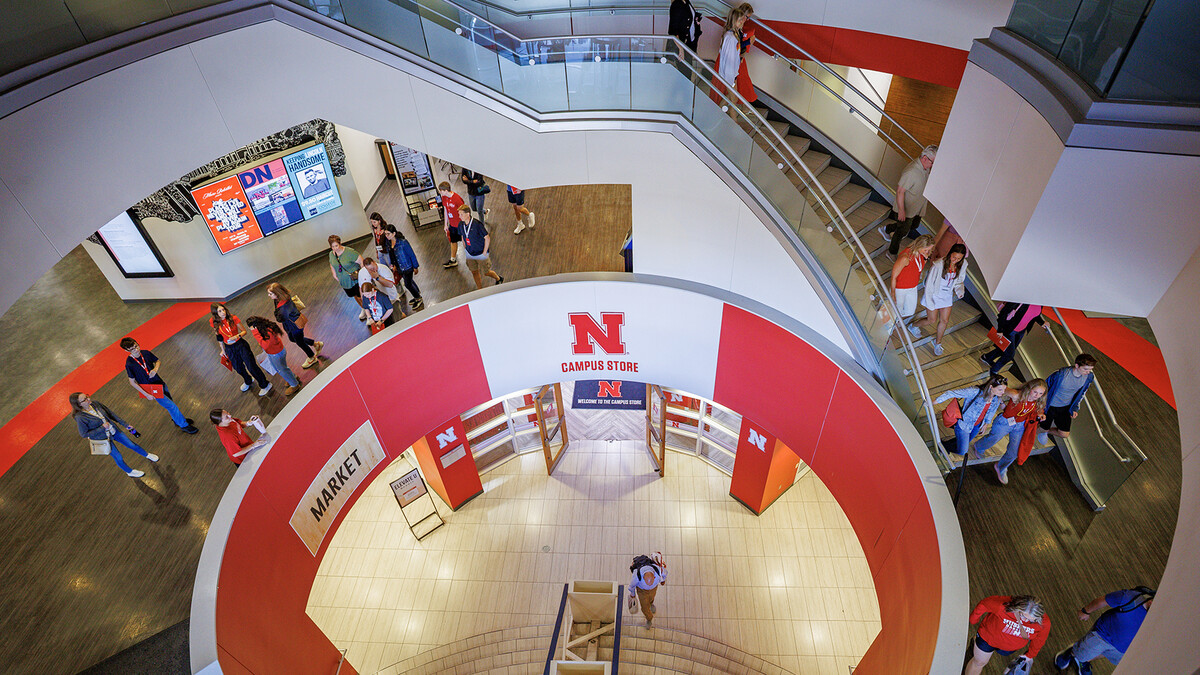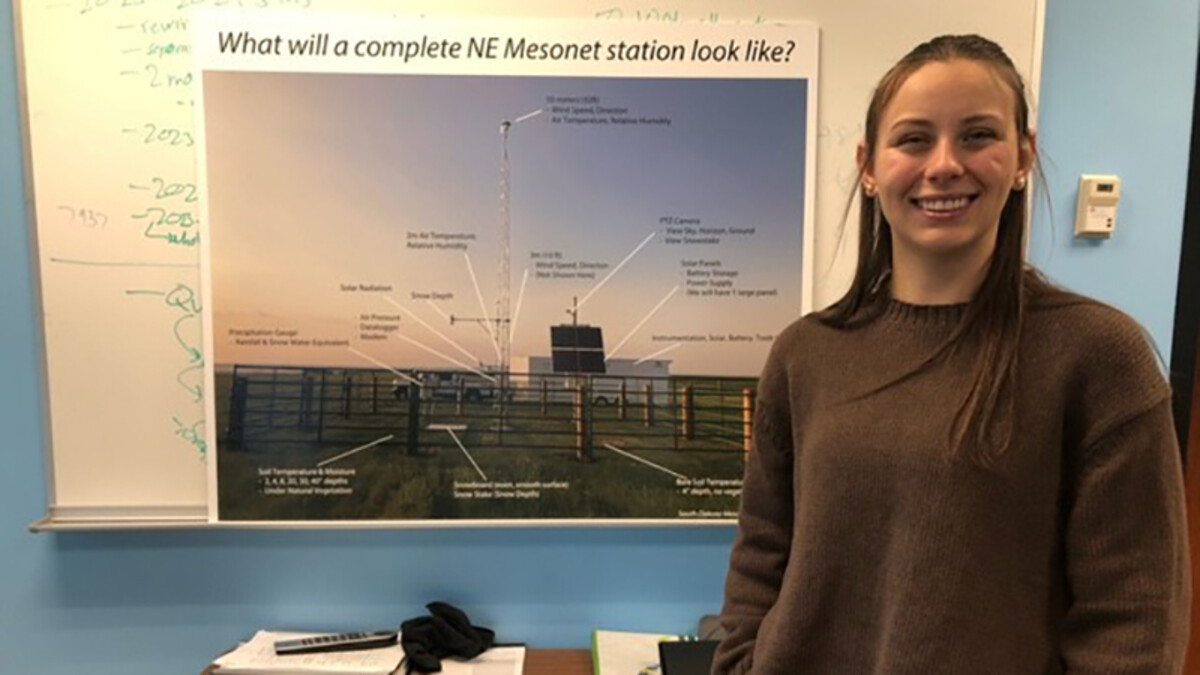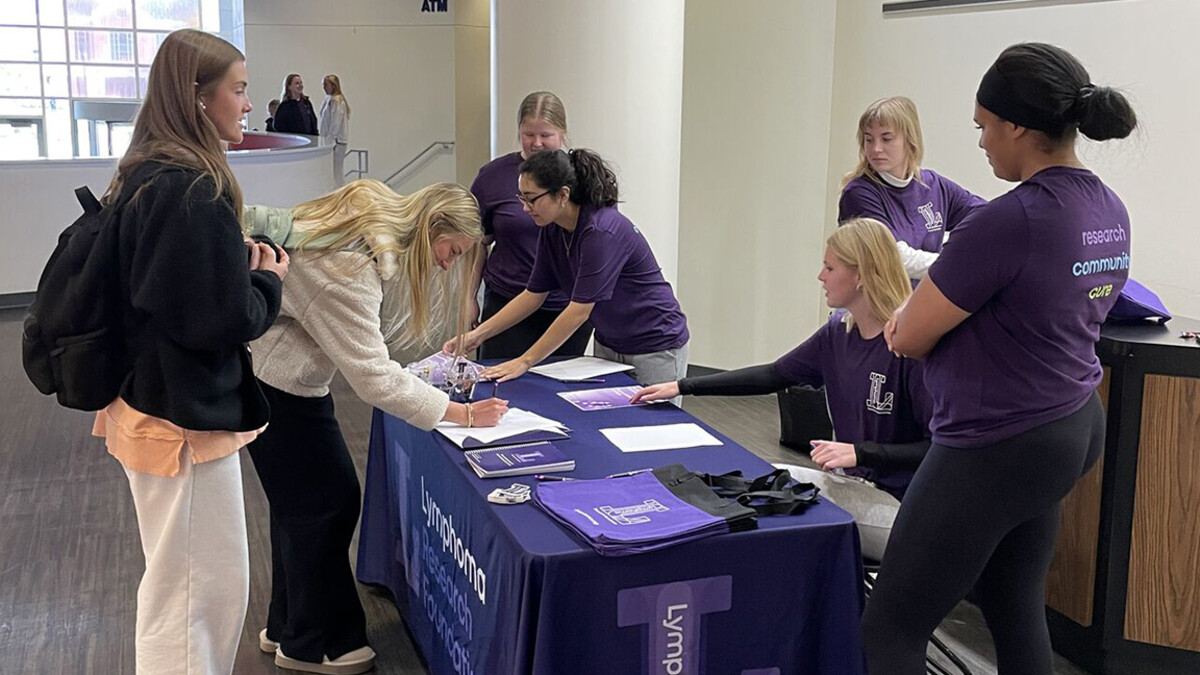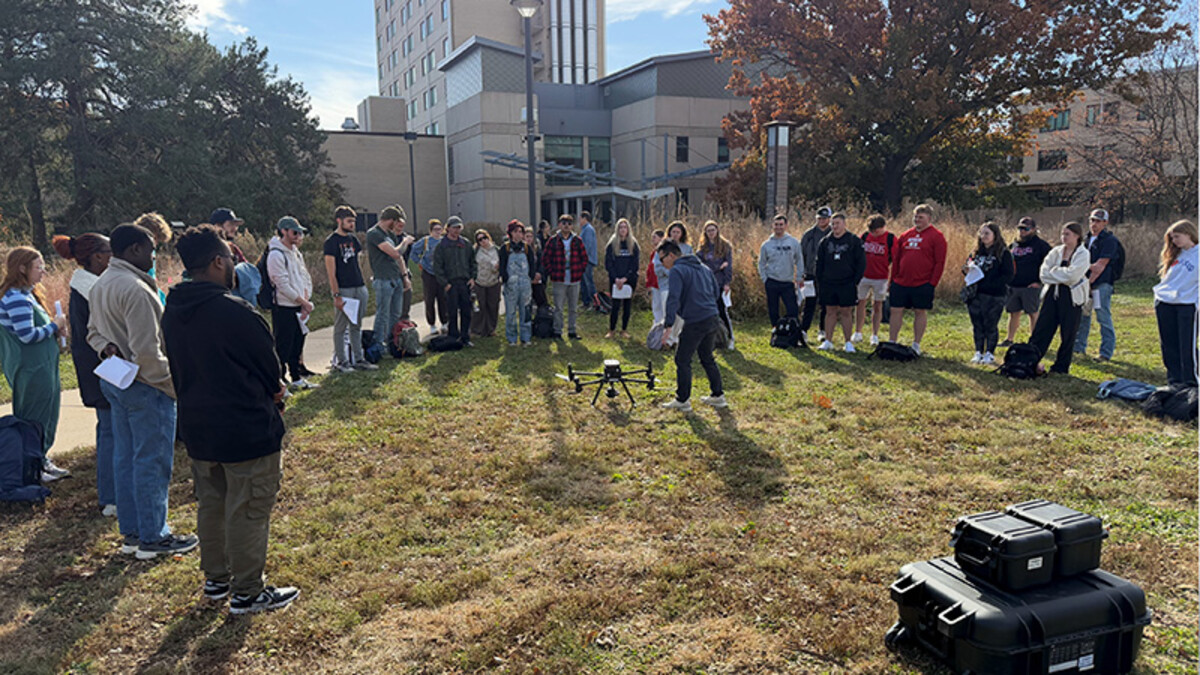
The University of Nebraska–Lincoln’s Courtney Hillebrecht wrote a guest column for The Washington Post’s Monkey Cage blog on how the International Criminal Court is investigating possible war crimes by Russia in Ukraine. The article was among 25-plus national news stories featuring Husker faculty, staff, students, centers and programs in March.
Hillebrecht, Samuel Clark Waugh Professor of international relations and director of the Forsythe Family Program on Human Rights and Humanitarian Affairs, wrote in the March 21 column that the ICC faces a significant challenge in holding Russian President Vladimir Putin and other Russian leaders accountable.
“If Russia does not cooperate with the ICC or other international courts in times of peace, what can we expect in times of war?” she said.
More coverage:
Zhenghong Tang, community and regional planning, was interviewed for a March 1 New York Times story on how creeks are being utilized more in urban development. Tang spoke about how climate change may affect urban planning and flood control issues, which could cause damage to urban development along creeks.
Nasrin Nawa, a graduate student in the College of Journalism and Mass Communications, appeared in a March 2 HuffPost story on how Afghan Fulbright scholars are facing uncertainty after the city of Kabul was taken over last August. “I wasn’t able to concentrate on my studies,” Nawa said, “because I was in a weekslong phase of shock and denial after what happened back in my country.”
Elizabeth Niehaus, educational administration, appeared in a March 7 Chronicle of Higher Education story on student self-censorship. She spoke about her research findings that most students have different behaviors based on varying circumstances when it comes to voicing their opinions on campus.
A Nebraska Extension article was cited in a March 7 Washington Post story on often overlooked kitchen appliance settings. According to Nebraska Extension, most hot foods can be held for about 15 to 20 minutes in an oven set to 200 to 250 degrees. Any longer and one should use a food thermometer to make sure the food is at a safe temperature of 140 degrees or above.
Husker researchers earned a $6 million grant from the National Science Foundation to develop bioplastics for use in agriculture over the next four years. Stories on the research have appeared in Agri-View, Bioplastics Magazine, Bioplastics News and Environmental News Bits.
Tami Brown-Brandl, biological systems engineering, was featured in a March 8 National Hog Farmer article for her research on precision animal management. Brown-Brandl and her team are using radio-frequency identification technology to track individual animal statistics for early disease detection.
Deirdre Cooper Owens, history, director of the Humanities in Medicine program, spoke as part of the University of Buffalo medical school’s “Beyond the Knife” series, which is aimed at fighting systemic racism in the health care industry, the Buffalo News reported March 9. She spoke about racist medical experimentation in the 1830s as well as present-day attitudes and behaviors that contribute to racial disparities in health care.
Jack Beard, law, co-director of the Space, Cyber and Telecommunications Law Program, was interviewed for a March 10 Washington Post article on commercial satellite images being used in the Russia-Ukraine conflict. He said it remains unclear what the United States’ or other nations’ response would be if a commercial satellite were attacked. “It’s easy to say that a lot of these things are unsettled, because they are,” he said. “But they’re becoming more and more relevant.”
Sarah Browning, Nebraska Extension, appeared in a March 11 Successful Farming article on using seeds as a family heirloom. She spoke about how families can save the seeds from a plant each year to grow a plant in the future. “Maintaining the diverse genetic base that heirloom vegetables represent is also important so that their genetic traits are not lost,” she said.
The U.S. Drought Monitor — produced jointly by the university’s National Drought Mitigation Center, the National Oceanic and Atmospheric Administration and the U.S. Department of Agriculture — was highlighted in a March 11 New York Post article on drought conditions in the United States. More than half of the country is experiencing drought — the first time that has happened since 2012-13 — according to the monitor. The monitor was cited in a March 17 CNN.com article on drought conditions in the United States. Nearly 60% of the Lower 48 was experiencing moderate to exceptional drought conditions in mid-March, the largest area in a decade, according to the monitor. The monitor was also mentioned in a March 30 Patch article on Hawaii’s unusual winter weather. According to the monitor, almost 80% of the state is experiencing some level of drought, and the rest of the state is “abnormally dry.” As recently as Jan. 18, none of the state was in drought.
Erkut Sönmez, supply chain management and analytics, was cited in a March 11 Washington Post article on how Russia’s invasion of Ukraine has exacerbated food prices and shortages abroad. Currently in the Azov Sea, there are 30 ships loaded with wheat and sunflower seeds that were expected to sail for Turkey, Sönmez said. They cannot sail, since Russia has banned trade ships in the Azov Sea, although Turkey’s leaders have made appeals.
The National Herald published a March 13 review of Bedross Der Matossian’s new book, “The Horrors of Adana.” Der Matossian is the Hymen Rosenberg Associate Professor in Judaic Studies and vice chair of the Department of History at Nebraska.
Husker researchers are studying how corn roots adapt to insufficient nitrogen, with an eye toward making genetic tweaks that might increase, or at least maintain, plant growth and yields without excessive application of fertilizer. Technology.org ran a March 14 article on the research.
Mary Drewnoski, Nebraska Extension, was cited in a March 15 Successful Farming roundup of experts’ answers to beef production questions. She addressed how cows will do if they graze dormant Conservation Reserve Mix in the fall or winter. “CRP grass is really about the same as grazing cornstalks — maybe 5% to 6% crude protein and about 50% total digestible nutrients,” she said. “I’d run a nutrient analysis on the CRP grass. With any forage, the best advice I can give you is to test it. It will save you a lot of money.”
Rupal Mehta, political science, co-wrote a March 14 piece for War on the Rocks with Jelena Vićić, a postdoctoral scholar with the Center for Peace and Security Studies at the University of California, San Diego, titled “Why Russian cyber dogs have mostly failed to bark.” “The notable absence of cyber options employed so far (in the Russia-Ukraine conflict) has puzzled cyber security experts,” the writers noted.
The value of agricultural land in Nebraska increased by an average of 16% over the prior year, to a statewide average of $3,360 per acre, according to the preliminary findings of the university’s 2022 Farm Real Estate Market Survey. Stories on the findings appeared in at least six Nebraska media outlets, as well as DTN Progressive Farmer and Farms.com.
Martha Morton, chemistry, director of research instrumentation at Nebraska, was interviewed for a March 16 Chemical and Engineering News article on the conflict in Ukraine exacerbating the helium shortage. She said her price per liter has risen more than 20%. Smaller universities and private labs might have to shut down their nuclear magnetic resonance instruments, she said, a process that is expensive and difficult to do without damaging the instruments. The instruments and related tools use liquid helium to cool superconducting magnets.
The Lied Center for Performing Arts has invited talented students from Nebraska and beyond to apply for the 2022 Triple Threat Broadway Intensive and Piano Academy, Broadway World reported March 16.
Meena Pannirselvam, a graduate student in educational administration, was interviewed for a March 17 Teen Vogue story. Pannirselvam spoke about her experience organizing a vigil and campuswide talks with the Jackie Gaughan Multicultural Center following the Atlanta spa shootings in which eight people were killed, including six Asian women.
Paula Harper, musicology, was quoted in a March 18 Nylon article on musicians going through a “pop villain” phase as a rite of passage. Harper said Charlie XCX’s recent campaign in which she claims to be turning evil is in conversation with pop stereotypes as well as capitalizing off shock in a meme and viral obsessed culture. “(There’s a) deliberate invocation of the sacred as a way of producing outrage that is marketable or is profitable,” Harper said.
Harper was also interviewed for a March 25 Jezebel article on the Gaylor theory — an internet-based theory that suggests music artist Taylor Swift is gay. Harper discussed how the rise of niche online communities created an ideal environment for a theory like this to thrive. The assistant professor organized SwiftCon in 2021, a multi-day academic conference about Swift.
The Lied Center for Performing Arts announced its 2022-23 Glenn Korff Broadway Series on March 23. The series will feature “Hamilton,” “Chicago,” “Jagged Little Pill,” “Legally Blonde: The Musical,” “Dr. Seuss’ How the Grinch Stole Christmas,” “The Book of Mormon,” “On Your Feet!” “STOMP” and “Madagascar.” Stories on the Broadway series appeared in five Nebraska media outlets and Broadway World.
David Yuill, architectural engineering and construction, was quoted in a March 28 New York Times article on heat pumps. According to the article, heat pumps are especially efficient, using half as much energy on average than other electric home-heating sources. “You put in a watt of electricity and get four watts out of it,” Yuill said. “It’s like magic.”
Andrea Basche, agronomy and horticulture, was interviewed for the March 29 episode of the Ag PhD Radio Show. She discussed her cover crop management course.
Faculty, administration, student and staff appearances in the national media are logged at http://newsroom.unl.edu/inthenews. If you have additions to the list, contact Sean Hagewood at shagewood2@unl.edu or 402-472-8514. If you have suggestions for national news stories, contact Leslie Reed at lreed5@unl.edu or 402-472-2059.
